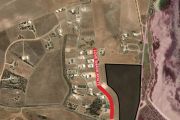
Lendlease holds ground in $10b property funds fight
Lendlease has won a critical showdown against Hostplus after the industry super fund’s latest bid to oust the ASX-listed fund manager from running one of its flagship real estate vehicles failed to achieve quorum at an investor vote.
The meeting was scheduled to decide on a proposal for Mirvac to replace Lendlease as the manager of a $2.8 billion shopping fund, a move spearheaded by activist super fund investors Hostplus, along with UniSuper.

That vote has been adjourned until next week, after less than two-thirds – the required quorum – of the fund’s 30 or more institutional investors failed to log in or show up to vote at the hybrid meeting on Wednesday.
The failure to reach a quorum hands a short-term win to Lendlease as it fights to retain control over $10 billion Australian Prime Property Fund platform.
The retail fund – known as APPR Retail – is one of the three unlisted vehicles that comprise the APPF platform, which forms the centrepiece of Lendlease’s funds management business.
But momentum is swinging Lendlease’s way after it last month successfully saw off a similar move to bump it out of the manager’s berth at APPF Industrial, a $2 billion fund holding warehouses and logistics facilities.
In that case as well, the two industry super fund giants had pushed to replace Lendlease with Mirvac, an effort that faltered after two attempts to achieve meeting quorum. Lendlease had urged APPF Industrial investors not to attend the meetings, to thwart the prospect of a decisive vote.
That tactic sparked the ire of Hostplus, which went public this week, ahead of the APPF Retail investor vote, to slam Lendlease over its governance of the APPF funds.
“This raises serious governance concerns about how investor decisions can be made in a timely, accountable, and sensible way,” Hostplus said in a statement issued on Monday.
“It is not merely an administrative issue, particularly when Lendlease was telling investors not to attend, well knowing that the APPFI quorum requirements are dated and inappropriate.”
With the conclusive vote of the management of the APPF Retail fund a week away, its investors may be more focused on a so-called liquidity window that opens in November, allowing them to lodge redemption requests. As their fund manager, Lendlease is pressing ahead with the sale of a major asset to generate cash to meet expected requests.
The third fund in the APPF stable is a $5 billion-plus commercial vehicle with stakes in major office towers such as Sydney’s 55-storey Salesforce Tower and 1 Farrer Place. No formal proposal has been lodged to dump Lendlease, although that too could be on the cards.
While the drama has still some way to play out, the battle for control of the APPF platform has highlighted the increasing power of Australia’s industry super funds as their commercial property portfolios grow, both directly and through pooled funds such as those run by Lendlease or through individual mandates.
Not only are the major industry funds increasingly willing to intervene in how those real estate exposures are managed, but their choices are sometimes putting co-investors at odds with one another.
In its statement this week, Hostplus also lashed out at its fellow investors, including other domestic super funds, over the meeting failures for the APPF Industrial vote.
“Also of concern is the decision by a number of investors, including superannuation funds, sovereign wealth funds and other member-based organisations, to absent themselves from these meetings,” it said.
“By failing to attend, those other investors have denied their own stakeholders a voice in how their capital will be managed. Fiduciary responsibility demands active engagement and not passive avoidance.”
.











